My latest blog posts
Choosing a book to read based on its length
Picture the scene: It’s a quiet Saturday in your local town, and the heavens have opened. Thankfully, you’re near your favourite book store, so you hurry there. Shaking off the water drops on the doormat, you consider your options: 1) wait at the door until the rain lessens, 2) do
Announcing The Echoes of Love Blog Tour 2013
I’m delighted to announce the tour for my new novel, The Echoes of Love, which will publish on 6th December. Do check out my interviews and guest posts with the following bloggers if you get the chance…
Witches’ mirrors
One of my guilty pleasures, I confess, is rummaging about in bric-a-brac, antique and curios shops, looking for items that catch my fancy – a particularly vividly coloured glass vase, for example, or a beautiful, old wooden chest. As I wrote the heroine of my new book, The Echoes of
Favourite poem: ‘Venice’ by Henry Wadsworth Longfellow
Rare is the poet or writer or artist who visits Venice and is not so inspired that the city finds its way into a creative work. The lines of the architecture, the colours in the clothes, the food, the water, the sky; the scents of votive candles in the churches
In the country
I love this familiar view around where I live, with the sea in the background.
Remembering my first ever trip to Venice
A couple of weeks ago I wrote a post entitled ‘Inspiration for my new book: The two faces of Venice’ in which I described first visiting the city as a young girl: I first visited Venice as a young child. Then, as now, I was wide-eyed and enchanted by the
My inspiration: The differing views from my window in the South of France
When I was a little girl, my bedroom had a spectacular view of the ocean. I would regularly sit at the window and daydream, enchanted by the blue of the waves and the dancing of the sun’s rays on the surface. When I grew up, I spread my wings and
NEW RELEASE: Book trailer for my new novel, The Echoes of Love
I hope you enjoy the book trailer for The Echoes of Love. I’d love to hear your thoughts on it, and please do share if you’d like to.
Venice festivals: The Feast of St. Martin
St. Martin, born in AD 316, was a kind and humble member of the Roman guard who became a Christian saint. He built monasteries at Ligugè and Mamontier, and served as the bishop of Tours (he is buried in the cathedral there). So goes the legend, on a dismal 11th
Foreign words of Venetian origin
In recent months I’ve been immersed in all things Venetian, from art to architecture, cuisine to customs, music to elements of language, as I prepared my book The Echoes of Love for publication on 6th December. Did you know that the Venetians have their own language? Venetian is a Romance
Book review: The Way Home by Cindy Gerard
From the blurb: Killed in Action – the most dreaded words imaginable for a soldier’s wife. Jess Albert has been living with them for four years, since the death of her husband in Afghanistan. Finding blessed numbness in routine, she doesn’t dare to look ahead, any more than she can
Inspiration for my new book: The two faces of Venice
I first visited Venice as a young child. Then, as now, I was wide-eyed and enchanted by the beauty of the city. I distinctly remember standing in the main square, the Piazza St Marco, gazing up at the stunning architecture of Saint Mark’s Basilica, and feeling I had somehow entered
Favourite poem: ‘In a Gondola’ by Robert Browning
Open my heart and you will see, Graved inside of it, ‘Italy’. So wrote the poet Robert Browning. Perhaps my favourite poet of all time is Robert’s wife Elizabeth Barrett Browning, especially her love poems, of which Robert was the subject. So I am well familiar with this Victorian poet,
Favourite writer: Gaston Leroux
My university degree was in French Literature, so it was inevitable that I would read the works of French journalist Gaston Leroux. Leroux (1868–1927) was a born and bred Parisian with a near-encyclopedic knowledge of his home city, gleaned through years working as a court reporter and theatre critic for L’Écho de Paris. He
Venice: The learned city
In my new novel The Echoes of Love, my heroine, Venetia, is an architect by trade who specialises in the restoration of historical mosaics. My choice of profession for my protagonist was quite deliberate. First, I wanted Venetia to be intelligent, creative, hardworking and determined, as of course all students
Book review: Love, in Writing by Elsa Winckler
From the blurb: A hardcore science fiction writer and a soft-hearted romance novelist clash on the sunny South African coast… Margaret Parker is a hopeless romantic whose fantasies fuel her writing. For Graham Connelly, science fiction is the perfect genre to express his cynical world view. A chance meeting in
Poems for Halloween
Regular readers of my blog will know that I love poetry, and what better occasion than Halloween to delve into the archives and pull out a few of my favourites for conjuring up the magical feeling of this time of year? First of all, who could resist that most classic
Must-read books for writers, established and aspiring
How did I learn how to write? By studying the craft of other writers, first and foremost – voraciously reading across genres from an early age, and studying literature through my schooling and at university. But along the way, like most writers, I’ve picked up the odd tome on writing
Saving Mr Banks: The truth behind the fairytale
Top of my ‘to see’ list for films is the new movie Saving Mr Banks, which just premiered at the close of the British Film Institute London Film Festival and is released in cinemas in late November. The film tells the story of the making of Disney’s seminal film Mary
Book review: Mistress of the Sea by Jenny Barden
From the blurb: Mistress Cooksley may be a wealthy merchant’s daughter, but she blushes at my words and meets my eyes look for look. Yet I cannot hope to court her without fortune, and a dalliance with a pretty maid will not hinder me from my path. Captain Drake’s endeavour
Nautical inspiration
There is much traffic in the bay of St Tropez in the summer, and it was one of these liners passing by my window all lit up one night that inspired the opening lines of Burning Embers.
Crowdfunded novels: the future, or a step too far?
Here’s how publishing has worked since its inception: Author writes book. Author publishes book (him-/herself or via a publisher). Readers buy book. (Hopefully!) Author makes profit on books sold. But a new route is emerging in the publishing industry that looks like this: Author writes book. Author asks readers to
Humour in quotations
I was most intrigued by a recent article in the Guardian on humorous quotations (‘Jane Austen tops humour league for Oxford dictionary compiler’). Gyles Brandreth is the complier of the Oxford Dictionary of Humorous Quotations (what a great idea for a book!) and he selected as the funniest quote in
‘Thoughts on the Venice Biennale’
Readers who enjoyed my recent posts on the Venice Biennale (‘A peek into the world of my upcoming novel: www.hannahfielding.net/?p=2721 and www.hannahfielding.net/?p=2750), will enjoy this article by artist Ana Tzarev: ‘Thoughts on the Venice Biennale’. The photos of artworks alone make this article worth a look – such colour and
Fruit crumble: The ultimate autumn recipe
The very thought of autumn makes my taste-buds fire up. Salads slowly make way for hearty soups, delicately light mousses for warming fruit pies. For me, autumn is all about the harvest – a wonderful crop of delicious fruits and vegetables: apples, blackberries, butternut squash, leeks, parsnips, pears, pumpkins… the
The business of publishing romance: Some facts and figures
There are some who turn their nose up a little at romance novels, claiming that they aren’t sufficiently high-brow or literary. I’d have a little more sympathy for this point of view if it was shared by the majority; if romance novels were, like literary fiction, a small section of
My latest blog posts
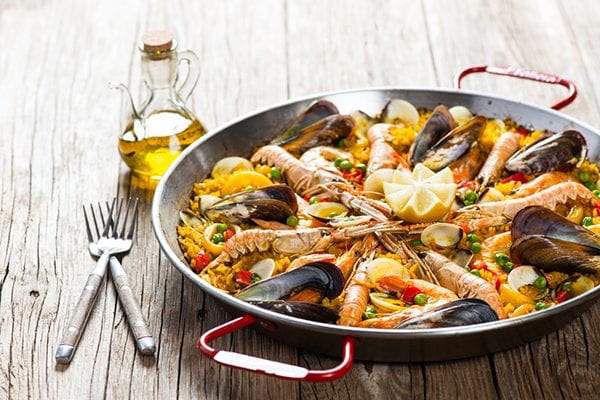
Paella: Preserving a national dish
If there is one thing I know about the Spanish – having visited their beautiful country many times and set my most recent fictional works, the Andalucían Nights trilogy, there – it is this: they are fiercely proud of their culture and heritage. That pride extends to cuisine, it has

Thoughts on the exposure of Elena Ferrante
In the past week, book news has been dominated by a single story: that of the unmasking of notoriously private Italian author Elena Ferrante. In case you have missed this story, here are the basics. Elena Ferrante is the pseudonym of an Italian novelist. In the past few years, her
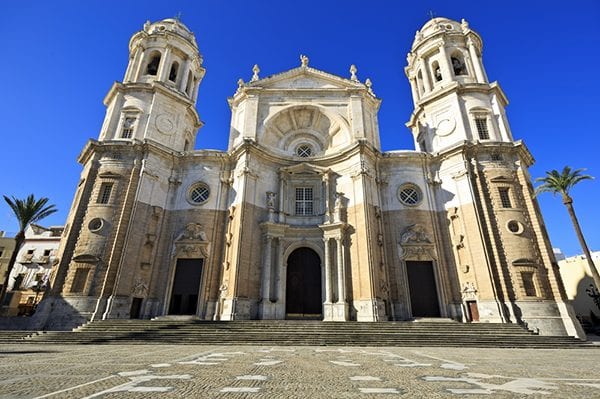
Cadiz cathedral: ‘the ship of souls’
‘A pile of rocks ceases to be a rock when somebody contemplates it with the idea of a cathedral in mind.’ So said one of my favourite French writers, Antoine de Saint-Exupery. I love architecture, and of course as a writer and a romantic I love places that are alive with symbolism

A soul bared: The flamenco guitarist
In my new book, Legacy, the male protagonist Ruy is of mixed heritage – he is part gentleman, part gypsy. His gypsy roots are very important to him, and one of the ways in which he connects to these roots and participates in the gypsy community is through music: he

Writing conventions: bridging between the old and the new
Any seasoned writer will tell you that writing ‘rules’ abound. Over the past hundred years or so, it has become de vogue for renowned writers and impassioned grammarians to publish ‘rules’ by which others should, they are certain, abide. Sometimes, these rules have merit – for example, Elmore Leonard’s ‘Try

Is there a right speed for writing?
Did you know that it took Victor Hugo 12 years to write Les Misèrables, and Margaret Mitchell toiled over Gone with the Wind for an entire decade? That, conversely, Stephenie Meyer wrote Twilight in three months, and Charles Dickens penned Great Expectations in eight months – while in the realms

Believing in fate, honouring the Fates
In my latest novel Legacy, the male protagonist, Ruy, is a man faced with two legacies: that of his mother, Luz, who is descended from a respected and noble Andalucían family, and that of his father, Andrés, whose mother was an infamous and powerful gypsy queen. It would be all

The fascination with a writer’s routine
Since I started publishing my romance fiction, I have lost track of how many times people have asked me about my process: just how exactly do I go about writing a book – and beyond that, writing the next book and the next and the next? I think the fascination

Love is… discovery
Do you remember the comic strip series ‘Love is…’ by cartoonist Kim Casali? For a time, in the 1970s and 1980s, this ‘brand’ was everywhere (perhaps because it called to mind the First Corinthians chapter of the Bible beginning, ‘Love is patient, love is kind’). Romantic that I am, I always
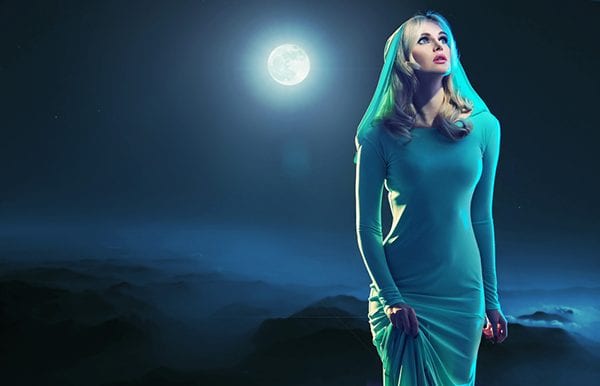
What’s in a name? On naming my ‘Moon Queen’ heroine
Choosing a name for the heroine of a novel is, for me, one of the most fun parts of the writing – but also one of the most important. The name must encapsulate the very essence of the story, its atmosphere, its meaning. In my debut novel, Burning Embers, I
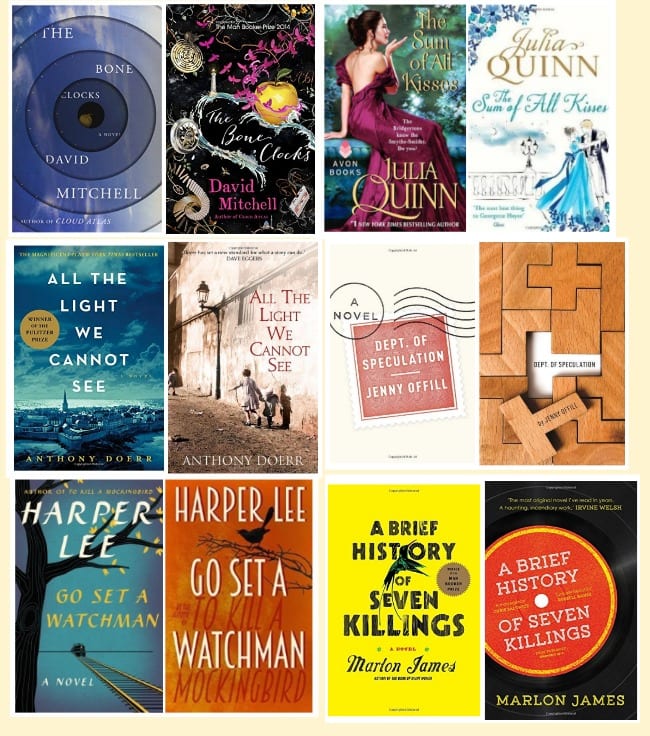
Divided by a common language: British and American book editions
George Bernard Shaw said, ‘The British and the Americans are two peoples divided by a common language.’ I have always been intrigued by this quotation, and the truth behind it, especially when it comes to book publication. No doubt you are aware that British and American editions of the same

Career matters… when it comes to romance
Careers are at the heart of my new novel Legacy. The hero, Dr Rodrigo Rueda de Calderón (Ruy), is a doctor who has set up a clinic offering alternative medicine to those suffering from cancer. The heroine, Luna Ward, is a journalist with a prominent scientific magazine in the United

Should we unearth ‘lost’ books, or leave them well alone?
The lost manuscript has long been a source of fascination for readers and for writers. When an author’s work is beloved, there is an insatiable desire for more, and the discovery of a ‘new’ old book can cause quite the sensation. In the past year alone the publishing headlines have
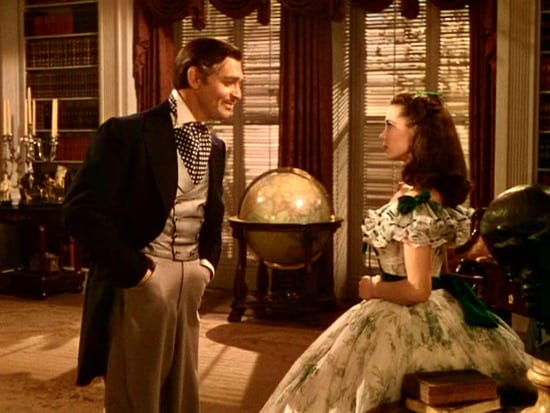
Shaping the ‘meet cute’ in Legacy
No doubt you’re familiar with the movie screenwriting term ‘meet cute’. It originated in the 1940s, when romantic comedies incorporated attention-grabbing and amusing scenes for the leads’ first meeting. Here is an explanation from the 1955 play Will Success Spoil Rock Hunter?: [T]he beginning of a movie is childishly simple. The boy

Should an author today fuse storytelling with style?
Did you watch any of the Olympics coverage? I did: I find the athletes very inspiring. They work tirelessly, they make sacrifices, they push themselves to the limit emotionally and physically: they represent all that is beautiful about having a dream and pursuing it. My favourite event is the heptathlon,

A legacy rooted in family
Two households, both alike in dignity… From ancient grudge break to new mutiny… From forth the fatal loins of these two foes… A pair of star-cross’d lovers… No doubt you will recognise the preceding abridged quotation, from the prologue to Shakespeare’s Romeo and Juliet. Romeo is a Montague, Juliet a
My latest blog posts

Writing a novel: a marathon, not a sprint
This month is NaNoWriMo – National Novel Writing Month. All over the world writers commit to writing a novel in a month, and November is a blur of writing, and writing, and writing.

The heroine with a secret
In my latest novel, Concerto, the heroine, Catriona, has built a good life for herself. She is a partner in a psychologists’ practice and has a reputation as an excellent music therapist. She lives in a beautiful home on the coast near Nice. She is a single mother and is raising her son, Michael, in love.

The novels that shaped our world
Three hundred years ago, the first novel was published in English: Daniel Defoe’s Robinson Crusoe. The book was an instant bestseller (within a year of its publication it was into its fourth edition), and evidently it had a profound effect on readers, sparking debate on cultural imperialism and inspiring a wealth of ‘marooned’ narratives.
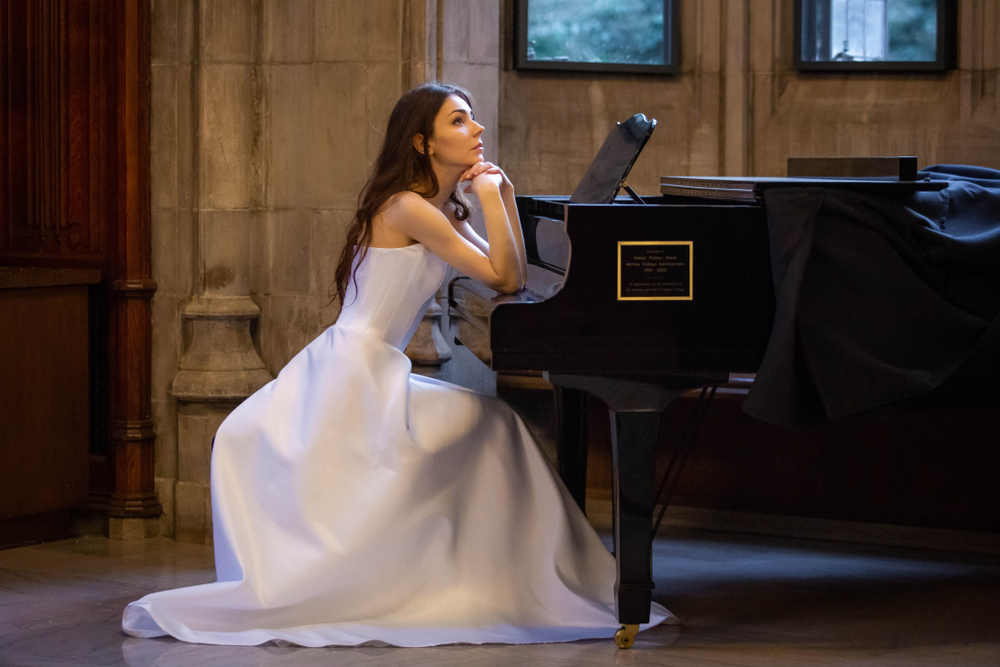
If you can’t follow your dream… change it
The hero and heroine of my novel Concerto are both very talented musicians. At the start of the novel, Umberto is in his early twenties and is taking the classical music world by storm as a great concert pianist and composer, and Catriona is in her teens and studying piano and singing. They are deeply passionate about their careers: Umberto is planning a tour of the United States, and Catriona wins a competition to study at the Conservatoire National Supérieur de Musique et de Danse in Paris, which will make her the opera singer of her dreams.

On losing books, rediscovering them, and treasuring them
Recently, the British media reported the story of a lady who discovered a book she had owned in her childhood for sale in the shop of the Museum of English Rural Life. She recognised The Secret Garden Ladybird Children’s Classics as hers by the hieroglyphics penned on the inside cover – a secret code she and her sister had devised.

Capturing music in words
Music is at the heart of my latest novel, Concerto. The heroine is an opera singer and the hero is a pianist composer. The novel draws on the rich heritage of classical and operatic music, particularly with relation to Italy, where much of the story is set.

Favourite reviews of my novels
It has been seven years since I published my debut novel, Burning Embers, and even now I can remember how nerve-racking it was to contact some book bloggers and ask whether they may like to review the novel. Would they enjoy the book? I very much hoped so.

Lovers with a history: healing from past mistakes in Concerto
Concerto, my most recent novel, tells the love story between music therapist and single mother Catriona and blind pianist Umberto. Umberto has not handled losing his sight well and has sunk into a depression, no longer able to compose and play as he once did so well. Catriona is hired to stay at Umberto’s Lake Como villa and work with him, and as she does so, attraction stirs between the two.

